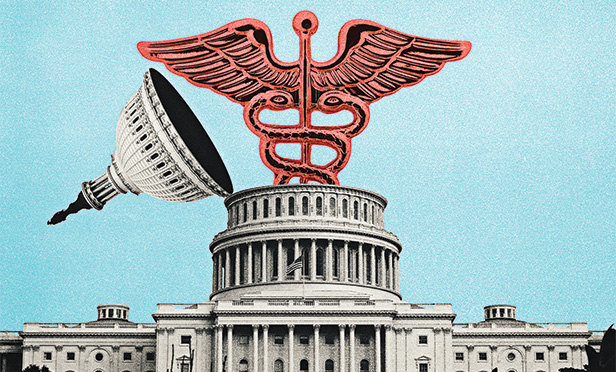 Republicans might have another shot to repeal the ACA in three years, but they need to start laying the groundwork now, Bobby Jindal cautions.
Republicans might have another shot to repeal the ACA in three years, but they need to start laying the groundwork now, Bobby Jindal cautions.
With President Biden's approval rating at an all-time low and Congress deadlocked on important issues, Republicans are optimistic about their chances to take control of the House, Senate and White House in three years. The question then becomes, what will they accomplish once they're there?
Bobby Jindal, former assistant HHS secretary and former governor of Louisiana (as well as former BenefitsPRO Expo keynote speaker), has a message for members of his party: It's time to get your ducks in a row.
Recommended For You
"Republicans need to be better prepared the next time they control both chambers of Congress and the White House," Jindal wrote in a recent op-ed for the Wall Street Journal. "By putting forward a series of incremental conservative health care reforms now, GOP lawmakers would increase their chances of success and provide a backup plan if they fall short again."
Fortunately for the GOP, the past two years have created a lot of potential new talking points. The pandemic shone a spotlight on the shortcomings of the current system, as well as accelerated the growth of many free-market solutions championed by Republicans as superior alternatives to a government-controlled health care system.
So what does Jindal see as the key talking points that Republicans can use to light a fire under voters? He outlines four ideas:
1. Permanently expand access to telehealth services
Indeed, telehealth experienced a meteoric rise during the pandemic, but as federal and local health emergency orders expire, this growth could be stunted. Jindal suggests pushing for permanent repeal of regulations limiting geographic and site restrictions.
2. Allow wider use of health savings accounts
"Legislation could increase contribution limits, decouple the accounts from high-deductible insurance plans, codify coverage of additional preventive care for chronic conditions and classify direct primary care, in which the patient pays a flat monthly fee to a doctor instead of a bill for specific services, as a qualified expense," Jindal writes.
3. Repeal rules that limit health-insurance options
The Trump administration relaxed regulations on association health plans and short-term plans, though many of those changes are now caught up in legislative limbo. Jindal emphasizes that such actions give the consumer more choice and flexibility and that Republicans should push to ensure and expand access to such alternatives.
4. Codify the authority of states to implement work requirements and modest premium and cost-sharing requirements in Medicaid
Medicaid work requirements have been a particularly contentious issue, with the Biden administration fighting to undo many of the program requests made under the previous administration.
Jindal also has some advice for state-level efforts, including codifying price transparency requirements, removing telehealth barriers, bolstering association health plans and expanding access to direct primary care, to name a few.
Though none of these specific reforms directly target the ACA, they will help build momentum, Jindal says. "Twelve years after ObamaCare was enacted, repealing and replacing it remains the goal for Republicans. Doing so will seem less risky to voters if preceded by successful steps in that direction."
© 2025 ALM Global, LLC, All Rights Reserved. Request academic re-use from www.copyright.com. All other uses, submit a request to [email protected]. For more information visit Asset & Logo Licensing.








